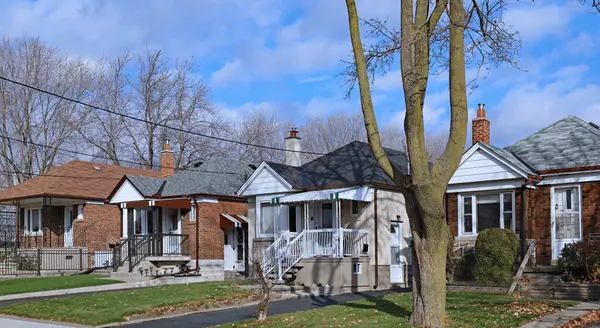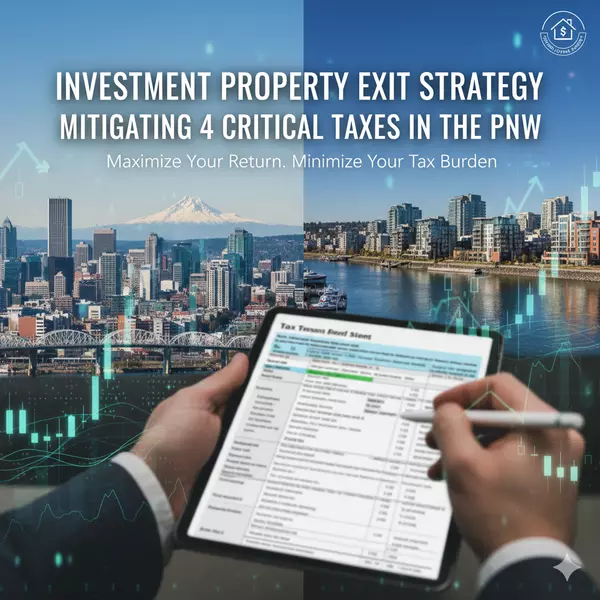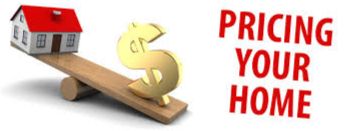The Ultimate Guide to Pricing Your Home Right
Categories
- All Blogs (499)
- For Sale By Owner (15)
- Local Events (7)
- 1031 Exchange PNW (1)
- Affordability (34)
- Agent Value (90)
- Buying Tips (202)
- Clark County Housing (4)
- Closing Costs (1)
- Community Support (2)
- Debt-Free Living, (1)
- Design (8)
- Downsize (8)
- Downsizing Vancouver WA (1)
- Economy (25)
- Equity (25)
- Expired Listings (1)
- Featured (1)
- Financial Planning (33)
- First-Time Home Buyer (149)
- For Investors (1)
- For Sale by Owner (4)
- Forecasts (16)
- Foreclosures (4)
- Foster Care Resrources (1)
- Fun Tips (5)
- Giving Back (1)
- Home Buying (255)
- Home Inspections (1)
- Home Prep & Staging (2)
- Home Prices (68)
- Home Selling (186)
- Home Staging PNW (1)
- Home Value (2)
- Housing Market Confidence (1)
- Independent Living PNW (1)
- Inventory (38)
- Lifestyle Move PNW (2)
- Listing Strategy (1)
- Local (25)
- Local Non-Profits (1)
- Luxury / Vacation (1)
- Market Update (39)
- Mortgage (57)
- Move-Up (4)
- Moving for Job Relocation (1)
- Negotiation Strategy (1)
- New Construction (9)
- Newsletter (10)
- Open House (1)
- Portland Downsizing (2)
- Portland OR (7)
- Portland OR Affordability (4)
- Portland OR Home Buying (4)
- Portland OR Homes (9)
- Portland OR Real Estate (23)
- Portland OR Seller Tips (2)
- Portland Real Estate FAQs (1)
- Portland Recession Risk (1)
- Portland-Vancouver Home Value (5)
- Portland-Vancouver Inventory (4)
- Price It Right Portland (2)
- Real Estate Investing (7)
- Real Estate Tax Strategy (1)
- Rent vs Buy (9)
- Restaurant Reviews (5)
- Retirement Planning (2)
- Seasonal (11)
- Selling Rental Property (2)
- selling tips (131)
- Technology (1)
- Teens & Young Adults (11)
- Trends (15)
- Vancouver WA (7)
- Vancouver WA Affordability (5)
- Vancouver WA Home Buying (8)
- Vancouver WA Home Value (2)
- Vancouver WA Real Estate (32)
- Vancouver WA Selling Tips (5)
- Wealth Building (13)
Recent Posts

The Lock-In Effect Is Breaking: Why PNW Homeowners Are Giving Up Their Low Mortgage Rate

The 3 Housing Market Questions You’ll Hear at Every PNW Holiday Party (and the Expert Answers)

Beyond the Sale, Beyond the Season: Your December 2025 Wrap-Up & What’s Next for 2026

The Savvy Buyer's Secret: How to Find the Best Deals in the Portland & Vancouver Market

Why So Many People Are Thankful They Bought a Home in the Portland-Vancouver Metro This Year

Why Buying a Home Still Pays Off: The Long-Term Wealth Gap in Portland & Vancouver

4 Reasons Your Portland or Vancouver Home Is High on Every Serious Buyer's Wish List This Winter

2025 Year in Review: A Year of Impact, Growth & Serving Families in the PNW

Investment Property Exit Strategy: Mitigating 4 Critical Taxes in the PNW

Beyond the Sale: A Downsizing Roadmap for Portland & Vancouver Homeowners




